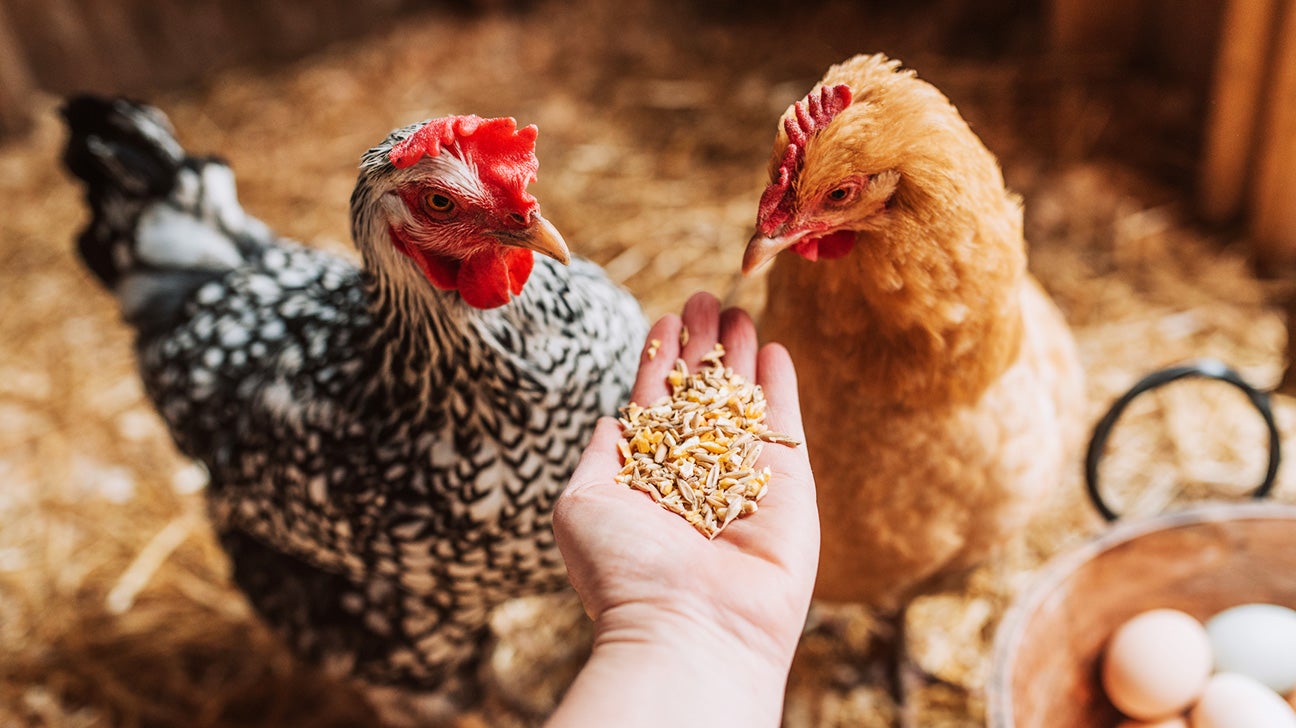If you’re looking to take your chicken husbandry to the next level, feeding chickens eggs is a great option. Eggs are an excellent source of protein, vitamins, and minerals for chickens, and can provide a balanced diet for your flock. This essential guide to chicken husbandry will provide you with the information you need to understand the basics of feeding chickens eggs, including when to feed, how much to feed, and what to look out for. With this knowledge, you can ensure that your chickens are getting the best nutrition possible.
Benefits of Feeding Chickens Eggs
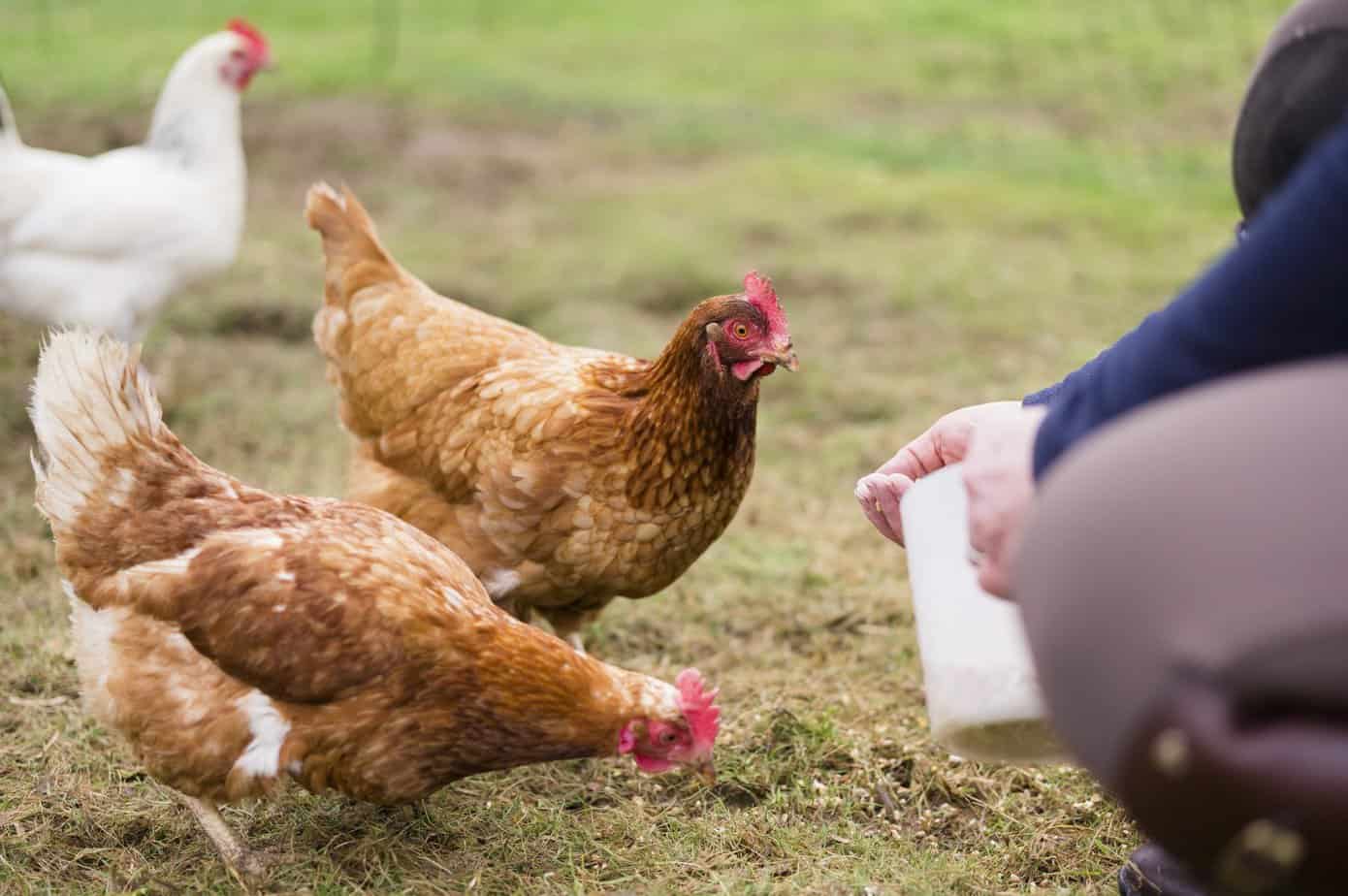
- Boosts nutrition: Feeding eggs to chickens can provide them with a balanced source of proteins, vitamins and minerals, which helps to maintain their overall health and wellbeing.
- High in energy: Eggs are high in energy, which is beneficial for young chickens that are in their growth stage. This energy helps chickens to build strong bones, muscles and feathers.
- Improves egg production: Feeding chickens eggs can help to improve their egg production, as the additional vitamins and minerals help to boost their fertility.
- Increases protein intake: Eggs are a good source of protein, which helps to improve the egg-laying capacity of chickens. Protein also helps to strengthen their feathers, bones and muscles.
- Reduces boredom: Feeding chickens eggs can help to reduce boredom, as it gives them something to do. This can help to keep them occupied and help to prevent egg pecking and feather plucking.
Can You Feed Chickens Their Own Eggs?
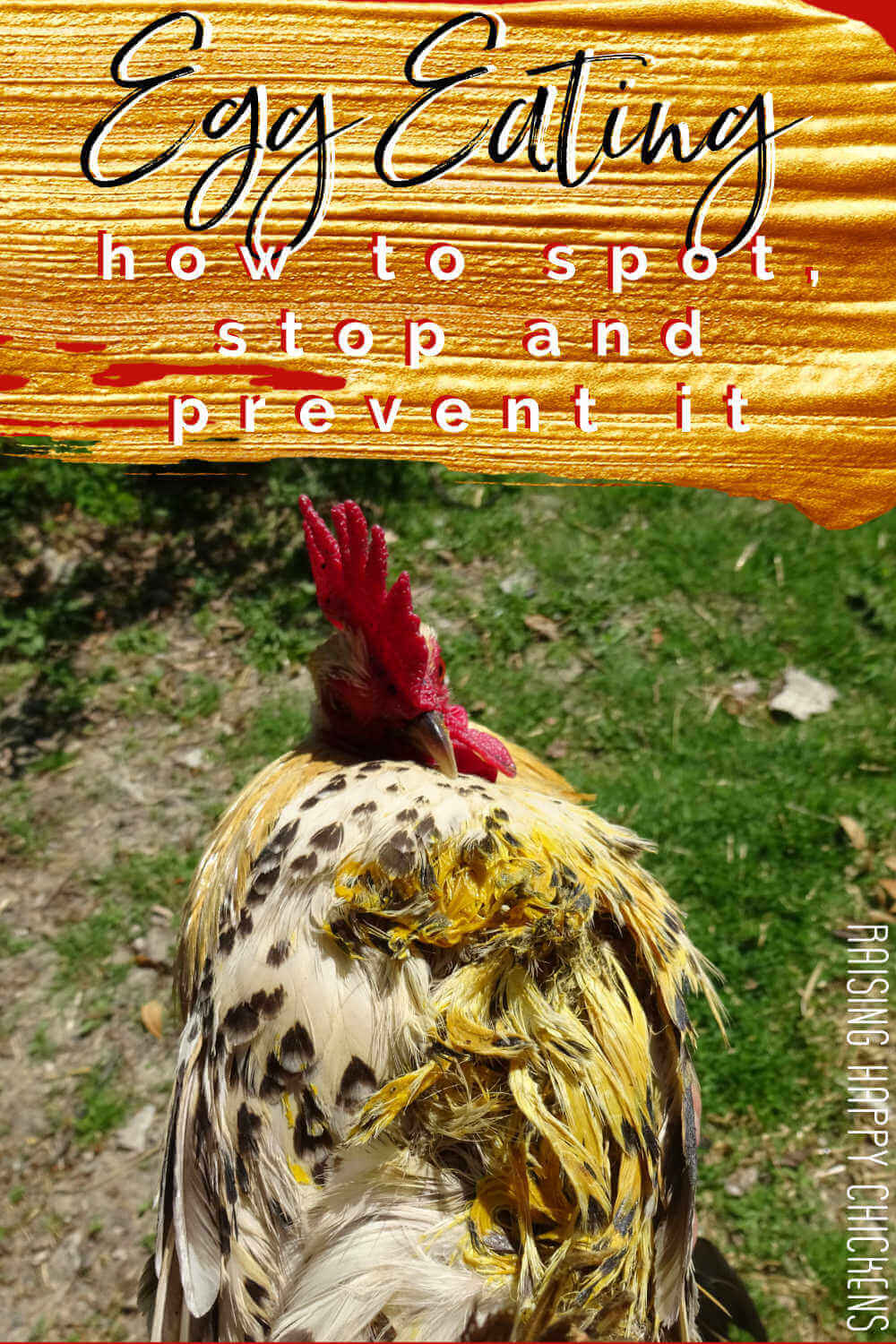
It is a common question amongst new chicken owners – can you feed chickens their own eggs? The answer is yes, you can. In fact, feeding chickens their own eggs is a great way to provide them with a nutrient-rich and protein-packed snack.
However, there are also a few things to consider before providing chickens with their own eggs. Firstly, make sure that the eggs you are giving to your chickens are freshly laid and have not been sitting in the nest for too long. This will help to reduce the risk of any potential bacterial contamination.
You should also bear in mind that the nutritional content of the eggs you are providing to the chickens will depend on the diet they are already eating. If your chickens are already receiving a balanced diet, then there is no need to supplement their meal with their own eggs. However, if they are not receiving a well-balanced diet, then adding a few eggs to their food can help to ensure they are getting all the essential nutrients they need.
Finally, it is important to make sure that the eggs you are providing to the chickens are correctly cooked. Overcooked eggs can be difficult for chickens to digest and can cause them to become sick. It is also important to remember that raw eggs can contain Salmonella, so it is best to cook them thoroughly before feeding them to your chickens.
In conclusion, you can feed chickens their own eggs, but it is important to make sure that they are fresh and cooked correctly.
Feeding Eggs to Chickens
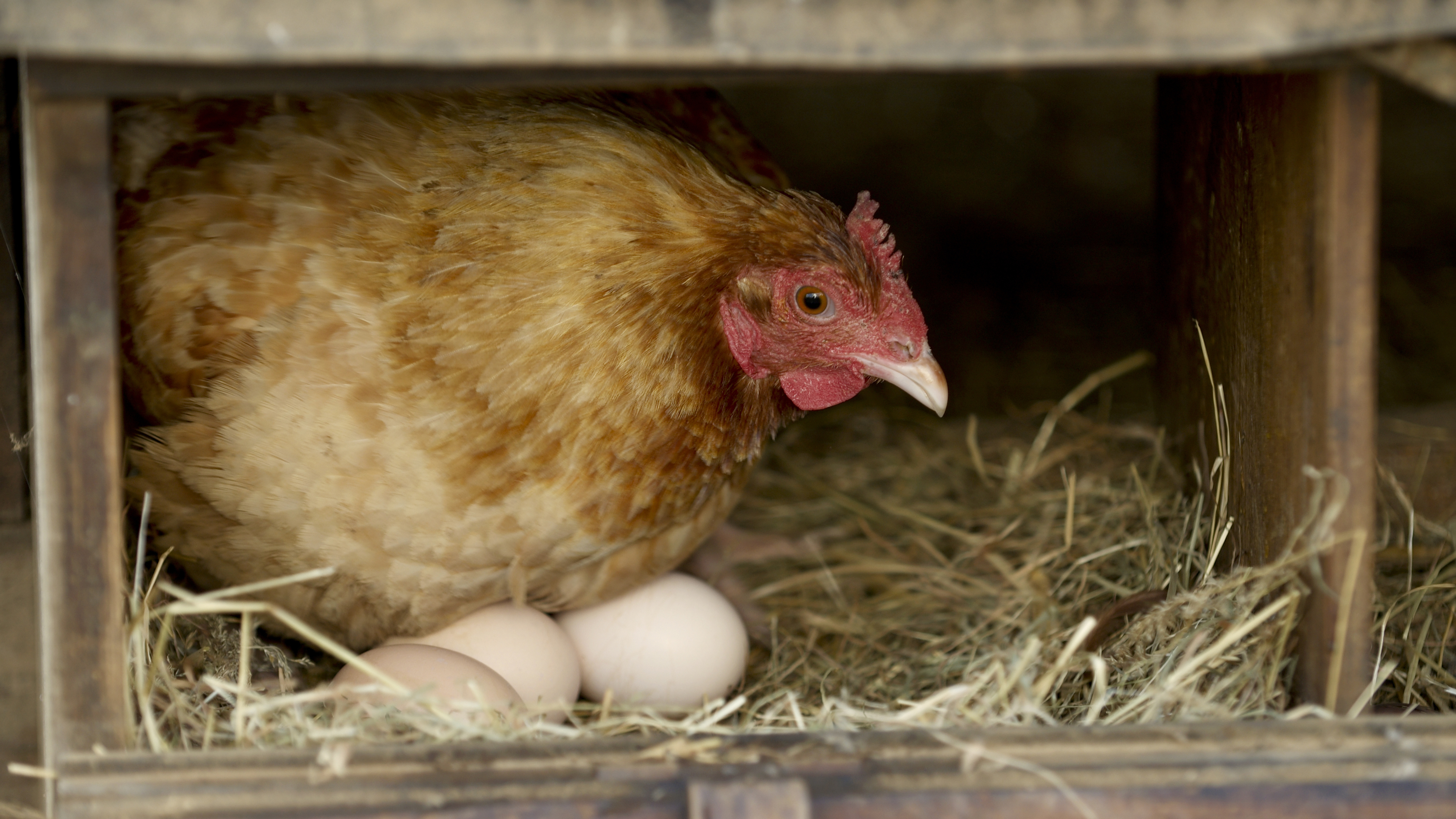
How Many Eggs to Feed
Eggs are a great source of protein for chickens and can be an important part of their diet. However, it is important to be mindful of how many eggs you feed to your flock. Generally, it is recommended to feed chickens no more than one to two eggs per week. This will help prevent them from becoming too dependent on eggs for their nutrition.
What Kind of Eggs to Feed
When it comes to the kinds of eggs you should feed your chickens, it is best to stick with plain, raw eggs. Cooked eggs can be fed, but they should be fed sparingly as they can be harder to digest. It is also important to note that eggs should never be fed to chicks younger than four weeks old.
What to Do with Unused Eggs
If you end up with eggs that you don’t plan to use in your chickens’ diet, you can always freeze them for future use. The best way to freeze eggs is to crack them open and separate the whites from the yolks. Once the whites and yolks have been separated, you can put them into separate airtight containers and freeze them for up to one year.
What Not to Feed
It is important to remember that eggs are not the only food that can be fed to chickens. There are a variety of other food items that can be used as part of a balanced diet, such as kitchen scraps, fruits and vegetables, and commercial chicken feed. It is also important to remember that some foods, such as onions, garlic, and avocados, are toxic to chickens and should never be fed.
In conclusion, feeding eggs to chickens can be an important part of a balanced diet, but it is important to be mindful of how many eggs are being fed. Additionally, it is important to remember that eggs should not be fed to chicks younger than four weeks old, and other food items should also be used as part of a balanced diet. Lastly, it is important to remember that some foods, such as onions, garlic, and avocados, are toxic to chickens and should never be fed. All of these factors should be taken into consideration when it comes to deciding whether or not eggs are good for chickens.
Are Eggs Good for Chickens?
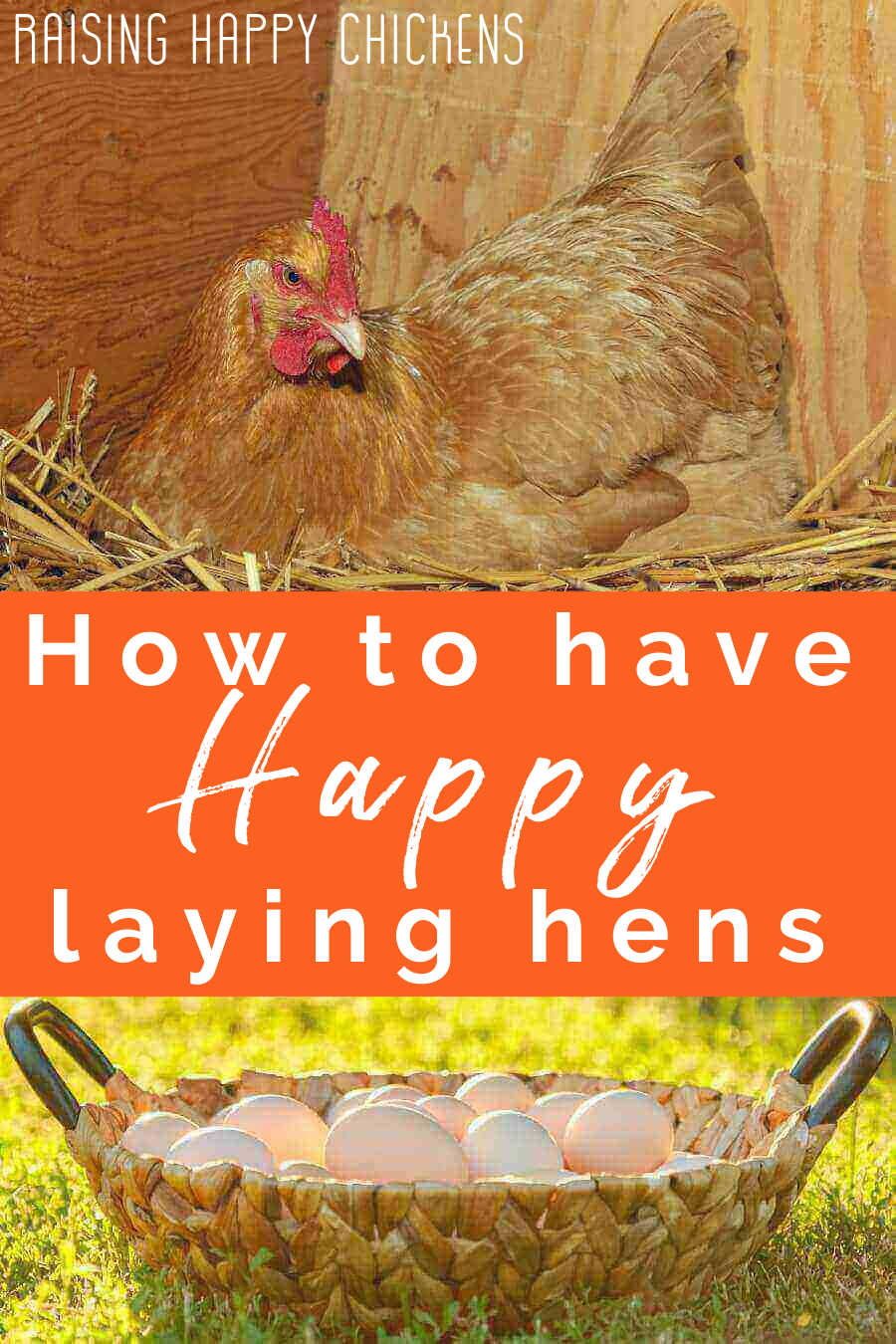
Yes, eggs are beneficial for chickens in numerous ways. Not only does eating eggs provide chickens with essential nutrients, it also helps to keep their digestive system healthy and prevents them from becoming egg-bound. Furthermore, providing chickens with eggs can help them to develop strong shells and can improve their overall health and well-being.
When feeding chickens eggs, it is important to feed them in moderation. Eating too many eggs can lead to an excess of calcium in the chickens’ diet, which can lead to egg binding and other problems. Additionally, feeding chickens eggs that are too large can be dangerous as they can choke on them.
Additionally, it is important to ensure that the eggs you feed your chickens are not spoiled or cracked. Spoiled and cracked eggs can potentially make the chickens sick, so it is important to check the egg before feeding it.
Overall, eggs are a great way to supplement a chicken’s diet and provide them with essential nutrients. However, it is important to ensure that the eggs are provided in moderation and are safe for the chickens to consume.
Preparing Eggs for Chickens
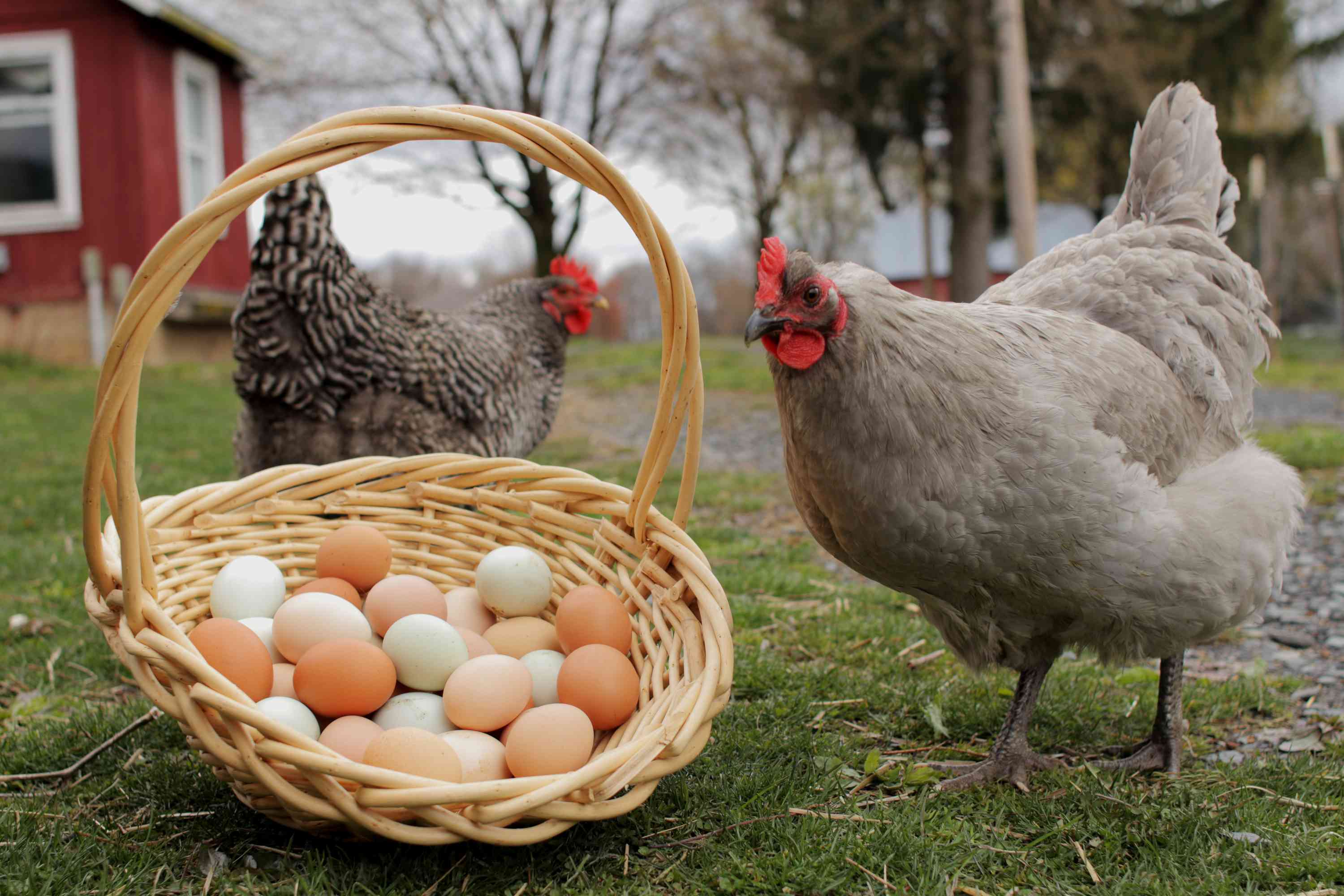
Preparing eggs for chickens is essential for providing them with a balanced diet. Eggs are a great source of protein, vitamins, and minerals. In order to provide chickens with the best nutrition possible, it’s important to understand how to prepare eggs for them.
Cleaning Eggs: Before feeding eggs to chickens, it’s important to clean them to remove any dirt or debris. This can be done with warm, soapy water. Make sure to dry the eggs off with a clean cloth before feeding.
Cooking Eggs: Eggs can be cooked for chickens in a variety of ways. Boiling and poaching are the most common methods for preparing eggs for chickens. Boiled eggs should be boiled for 10 minutes, while poached eggs should be cooked for five minutes. Scrambled eggs are also an option and can be cooked in a skillet with butter or oil.
Freezing Eggs: Another option for preparing eggs for chickens is to freeze them. This is a great way to preserve eggs and make them last longer. To freeze eggs, crack them into an airtight container and store them in the freezer. Frozen eggs should be used within six months.
Serving Eggs:
| Egg Type | Serving Size |
|---|---|
| Boiled | One egg per chicken |
| Poached | Half an egg per chicken |
| Scrambled | One egg per two chickens |
When serving eggs to chickens, it’s important to provide them in moderation. Too many eggs can cause health issues such as obesity, so it’s best to limit their intake to one or two eggs per week.
Eggshells for Chickens
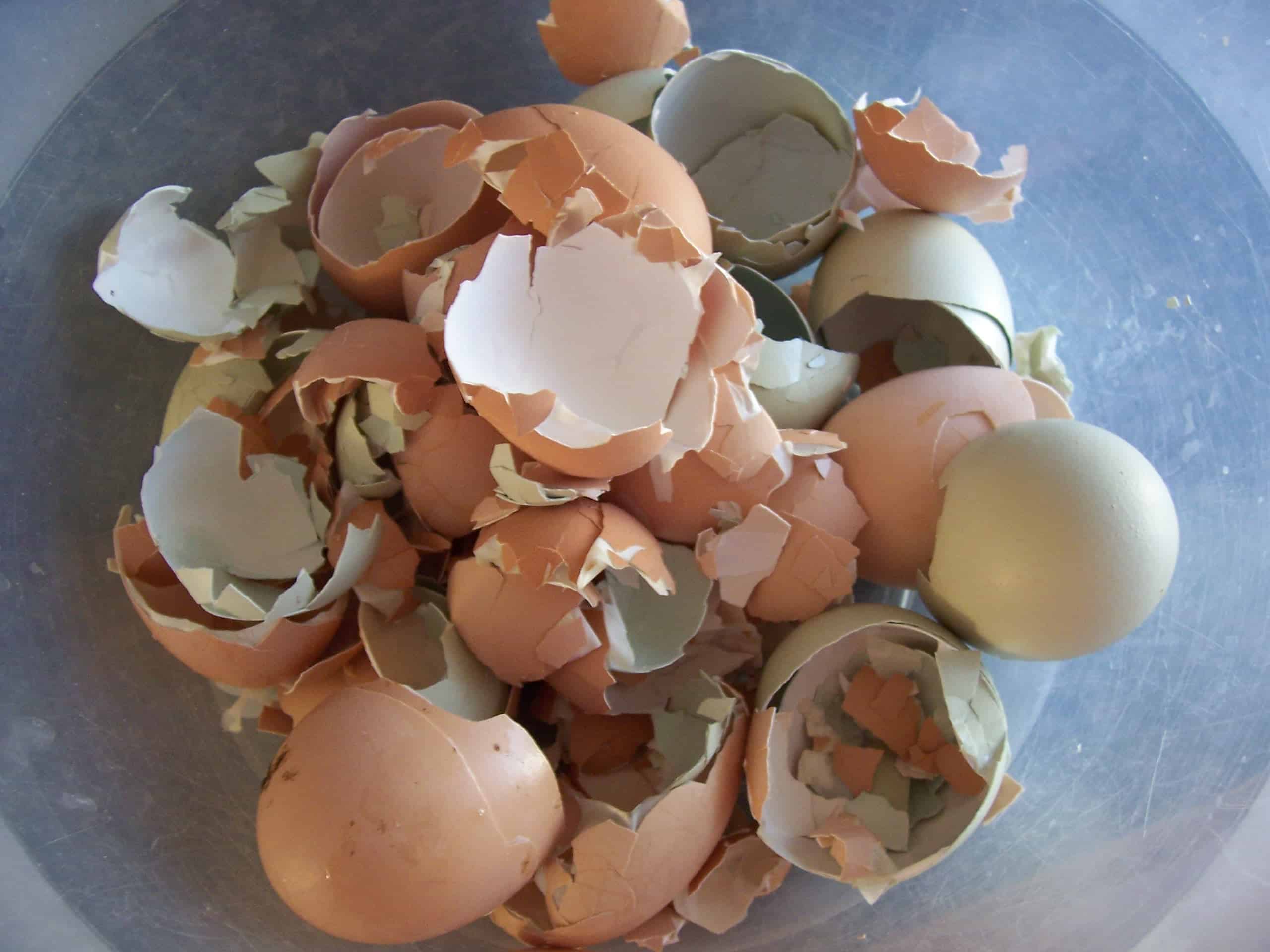
Eggshells are an essential part of the chicken diet, providing essential calcium and other nutrients. Eggshells should be crushed and included in the diet in moderation, as too much can cause digestive issues. Eggshells should be offered in small amounts, as part of a balanced diet, and can also be used to provide additional calcium for egg-laying hens.
Health Benefits – Eggshells are an excellent source of calcium, which is essential for healthy bones and egg production. Additionally, eggshells are rich in other minerals such as magnesium and phosphorus.
Safety – When feeding eggshells to chickens, it is important to ensure that the shells are completely clean. Any eggs that have been cracked should be thrown away, as they may contain bacteria or contaminants.
Serving Suggestions – Eggshells can be offered in a variety of ways. They can be baked and crushed into a powder, or offered as whole shells. Eggshells can also be boiled, dried, and then ground into a powder.
Conclusion – Eggshells are an essential part of the chicken diet, providing essential calcium and other nutrients. They should be offered in moderation, as part of a balanced diet, and should always be clean and free from contaminants. By following these guidelines, chickens can benefit from the health benefits of eggshells.
Dealing with Egg-Eating Chickens
When chickens are kept in a confined space, they may start to eat their own eggs. This is a common problem among chicken owners, and it can be difficult to stop. To prevent egg-eating chickens, it is important to ensure that they have enough space in the coop, and to provide them with plenty of distractions.
Remove the Eggs Quickly
The first step in preventing egg-eating chickens is to remove the eggs from the coop quickly. Once an egg has been broken, it can be difficult to stop the chickens from continuing to eat it. Make sure to check the coop regularly and remove any eggs that have been laid.
Provide Distractions
Chickens can become bored if they are not given enough stimulation. To prevent them from turning to egg-eating, it is important to provide them with plenty of distractions. Hang toys or treat balls from the ceiling of the coop, or provide them with a sand box to scratch in.
Increase the Size of the Coop
If the chickens are overcrowded, they may start to fight and peck at each other. This can lead to egg-eating behavior. To prevent this, it is important to increase the size of the coop. Make sure there is enough space for the chickens to move around and to spread out.
Provide an Alternative Food Source
Finally, it is important to provide your chickens with an alternative food source. This can be anything from fresh fruits and vegetables to commercial chicken feed. Make sure to offer a variety of foods to keep your chickens healthy and happy.
By following these steps, it is possible to prevent egg-eating chickens and keep them healthy and productive.
Frequently Asked Questions
Is it Safe to Feed Chickens Eggs?
Yes, it is generally safe to feed chickens eggs, although it is not recommended to feed them their own eggs as it can encourage egg-eating behavior. It is best to feed chickens eggs that are cooked, as raw eggs may contain bacteria that could make the chickens sick. It is also important to ensure that eggs are fresh and not cracked or broken. For more information on how to safely feed chickens eggs, please refer to the full guide.
Does feeding chickens eggs increase egg production?
- Yes, feeding chickens eggs can increase egg production. The eggshells provide the chickens with calcium, which helps to strengthen the bird’s bones and facilitate the production of eggs. Additionally, the proteins in the raw egg can help to increase the hens’ daily energy intake, which can lead to improved egg production.
- When feeding chickens eggs, it’s important to remember that the eggshell should be crushed. Crushing the shell helps the chickens to better digest the calcium, which can lead to improved egg production.
- It’s important to only feed the chickens raw eggs. Cooked eggs can be harder for the chickens to digest, and can lead to digestive issues.
- In moderation, feeding chickens eggs can provide them with essential nutrients and can lead to increased egg production.
How Often Should Eggs Be Fed to Chickens?
Eggs should be offered to chickens in moderation and as a treat, not as a regular source of nutrition. Chickens should receive no more than one egg per week, as too much egg in their diet can cause them to become egg-bound. While providing eggs is a great way to reward chickens, too much egg can lead to health issues, such as obesity and imbalanced nutrition.
Are there any nutritional benefits to feeding chickens eggs?
Chickens may benefit from eating eggs as part of their diet. Eggs are a great source of protein, vitamins, minerals, and essential fatty acids. Additionally, eggs are high in lutein and zeaxanthin, two antioxidants that are important for eye health. Eggs also provide a good source of choline, which can help improve brain development and cognitive function. Lastly, eggs are a great source of energy, and can help chickens lay more eggs if given daily.
Are there any risks associated with feeding chickens eggs?
Yes. While eggs are a great source of nutrition for chickens, there are some risks associated with feeding them. These include:
- The risk of digestive issues: Eating too many eggs can cause digestive problems such as diarrhea or egg binding.
- The risk of egg-eating behavior: Eating their own eggs can lead to a habit of egg-eating in chickens.
- The risk of nutritional deficiencies: Too much egg can lead to a lack of essential vitamins and minerals in the chicken’s diet.
- The risk of salmonella contamination: Eating eggs that have been tainted with salmonella can lead to food poisoning in chickens.
It is important to provide chickens with a balanced and nutritious diet to ensure they remain healthy and safe. Eggs can be a great way to provide chickens with nutrition, but it is important to monitor the number of eggs they are eating and to use caution when feeding them eggs.
Conclusion
It is important to understand the basics of chicken husbandry when considering adding eggs to a chicken’s diet. While it can be a healthy addition to their diet, there are potential risks to consider. Always consult with a veterinarian for advice on introducing eggs to a chicken’s diet, and ensure eggs are properly cooked to reduce the risk of salmonella. With correct husbandry practices, eggs can be a beneficial addition to a chicken’s diet.
